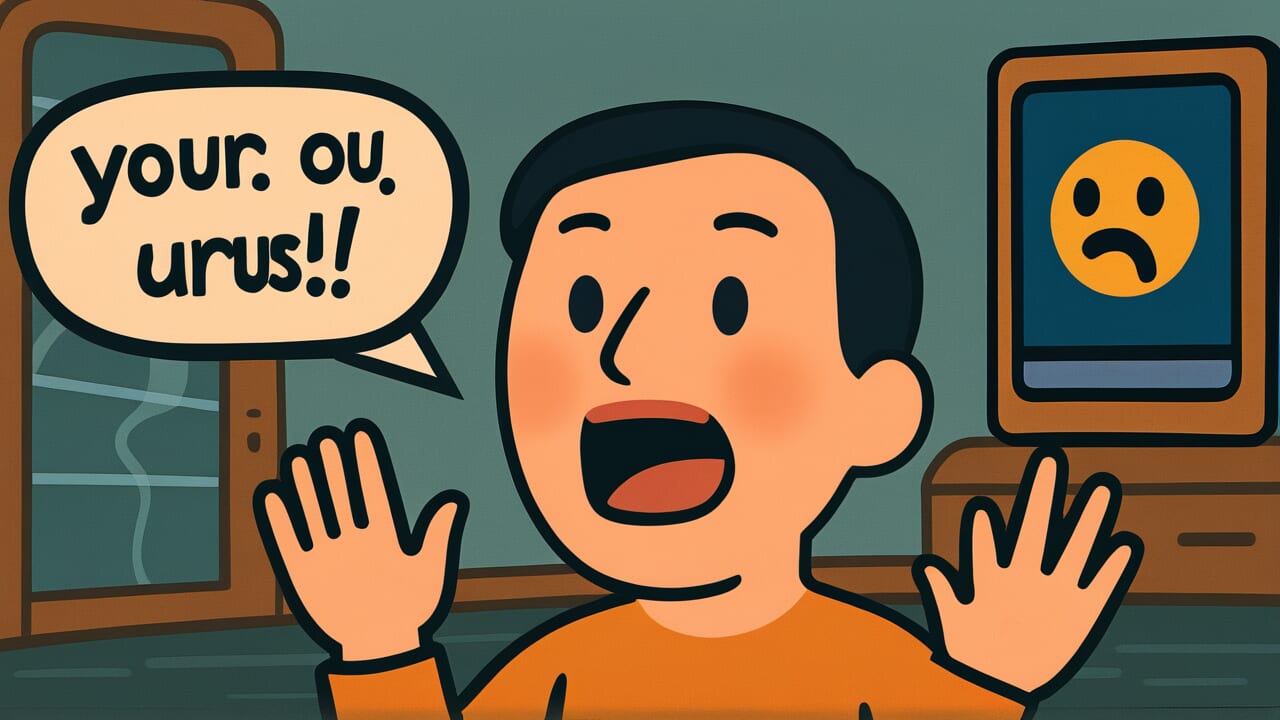How to Read “Curses also come from the mouth”
norou koto mo kuchi kara norou
Meaning of “Curses also come from the mouth”
This proverb warns us that words have the power to bring both happiness and disaster. We must use them carefully.
Words that curse others and words that bless them both come from the same place: your mouth. Once you speak words, you cannot take them back.
They reach the other person’s heart and affect reality. Careless insults, criticism, or angry outbursts hurt others.
But they can also come back to harm you. What goes around comes around.
Today we communicate through social media and email too. But the principle is the same.
The words you send out stay forever. They can spread in unexpected ways.
This proverb teaches us to pause before speaking. Think about whether your words are really necessary.
Consider how they will affect others and yourself. Words are not just sounds or letters.
They have the power to change people’s destinies.
Origin and Etymology
No clear written records explain where this proverb came from. But we can learn a lot from how it’s structured.
Notice how the word “curse” appears twice. The first part “curses also” refers to the act of cursing itself.
The second part “come from the mouth” shows that curses must be spoken. This repetition emphasizes the power of words.
Ancient Japan had a belief called “kotodama.” This means that words have spiritual power.
What you say out loud can actually become reality. Good words bring good things. Bad words bring bad things.
This belief taught Japanese people to respect and fear the power of language.
The word “curse” originally had religious meaning. It referred to praying to gods and Buddha.
But over time, it also came to mean wishing harm on others. This proverb warns that even curse words come from the mouth.
Any words you speak will have some effect. The proverb recognizes both the creative and destructive power of language.
This deep wisdom has been passed down through generations.
Usage Examples
- That person always talks badly about others. But curses also come from the mouth, so it will come back to them someday.
- One careless comment turned into a huge problem. This is exactly what “curses also come from the mouth” means.
Universal Wisdom
Humans are emotional creatures. When we feel angry, jealous, or frustrated, we want to express it in words.
In that moment, it might feel like relief. But this proverb has been passed down for hundreds of years.
Our ancestors learned through experience about the terrifying power of words.
Words have mysterious power. The moment you speak them, they become more than just sounds.
They reach the other person’s heart. They get carved into memory. Sometimes they destroy relationships. Sometimes they change lives.
Interestingly, negative words stick in memory more strongly than positive ones. They pierce the heart more deeply.
Everyone has spoken words in the heat of emotion. And everyone has regretted words they wish they could take back.
This proverb teaches the importance of that brief moment before speaking. Whether you can pause in that moment shows your maturity as a person.
Words can be weapons or healing. They can be curses or blessings.
The choice is always in our own hands. This proverb reminds us of that heavy responsibility.
When AI Hears This
When a human speaks the word “curse,” an amazing physical process happens in the body.
First, air pushes out from the lungs. The vocal cords vibrate about 120 times per second.
The tongue touches the palate to make the “no” sound. The lips open to form “ro.”
This series of movements completes in about 0.3 seconds. During that time, sound waves radiate through space at 340 meters per second.
In the moment of speech, your body is completely locked into specific physical movements. The acoustic energy released can never be recovered.
This is the terrifying thing about language. You can revise thoughts in your head as many times as you want.
But the moment they pass through your vocal organs, they become an irreversible physical phenomenon.
Curse words and blessing words both vibrate air molecules as sound waves once they pass through the mouth.
They reach the other person’s eardrum. There is no undo button.
Even more interesting is this fact: speech requires about 0.2 seconds of preparation time.
Before you say “curse,” your brain has already started sending commands to your muscles.
If you cannot stop during this preparation stage, your body system automatically completes the vocalization.
A curse is not decided at the moment of thought. Once articulation preparation begins, its release into the physical world is already determined.
Lessons for Today
This proverb teaches us that the power to choose our words is the key to enriching our lives.
We speak countless words every day. Conversations with family, exchanges at work, posts on social media.
Each one weaves the story of your life. Words spoken in anger, insults born from jealousy, careless criticism.
They might release temporary emotions. But in the long run, they lower your character, lose trust, and disturb your peace of mind.
But that doesn’t mean you need to stay silent. What matters is that brief moment before speaking.
Are these words really necessary? Do they show care for the other person? Will your future self be proud of these words?
Develop the habit of asking yourself these questions.
Being careful with words is not weakness. It is the strength to control your own life.
The words you choose create your future. Starting today, try being a little more conscious of the words you speak.
That small change will eventually bring great happiness.



Comments